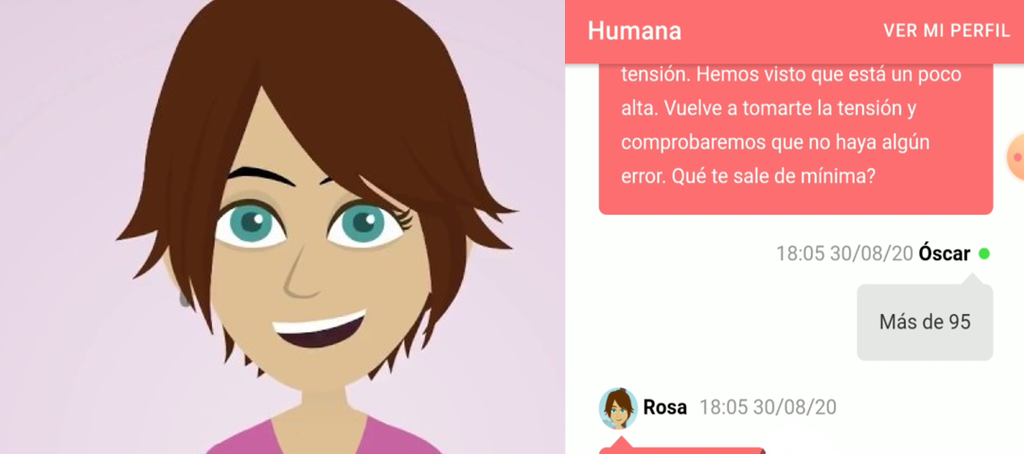Robots meet the senior population. The future is today.
Your home and your community are where you can best manage your chronic condition. Clínica Humana works with older persons with multiple chronic conditions to improve quality of life and prevent hospitalizations. Managing elderly homecare means empowering older persons and their caregivers to become active players in their healthcare roles, increasing mental and physical engagement, as well as improving self-esteem.
However, taking over your health means overcoming a learning curve filled with obstacles and doubts. Older persons can always call Clínica Humana, but we know many times they do not. The reasons are diverse: they don’t know if the response will be quick enough or they hesitate if their question matters. Perhaps they simply fear their question is silly or they’re embarrassed to ask for information that the doctor has already provided. Although we encourage them to talk to us and learn, it’s also true that we would not be able to cope with an avalanche of questions on a daily basis.
Clínica Humana uses ROSA, a virtual nurse that reminds about medication or the next appointment, checks the evolution of biometric parameters (among others, blood pressure and glucose), answers common doubts, and alerts the doctor when necessary. ROSA is a mobile App that can be used 24/7. Neither elderly people or their caregivers are afraid of asking too many questions. Most importantly, vital parameters anomalies and generation of warnings and alerts can be automatised.
The SHAPES project brings together many digital solutions and creates a framework for collaboration and the generation of more intelligent tools. Clínica Humana has started a co-development with Vicomtech, TREE technology, Science For You, PAL Robotics and Kompai Robotics of a more complex but natural interaction between technologies and people, namely between robots and tolder persons. Together, we are creating a smarter virtual nurse that is able to predict exacerbations, communicate with voice, play cognitive games with the user, help in gait rehabilitation and even offer face-to-face interaction with robots to humanize technology.


